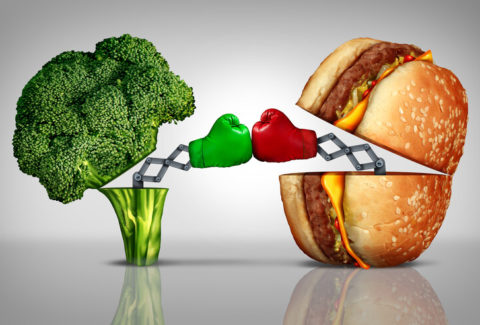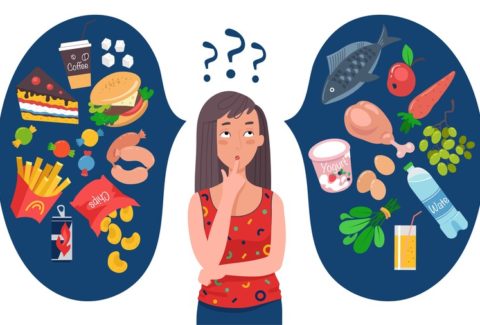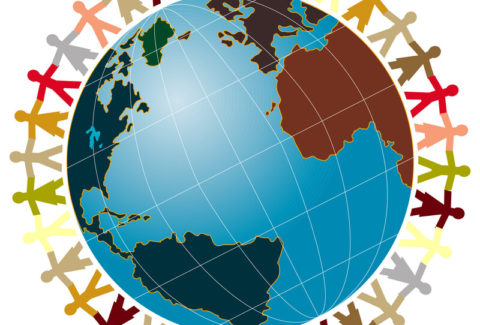Means and Consciousness
Means is defined as, “an action or system by which a result is about.” It’s also defined as, “a method, a manner, a way, or a process.” Lastly, means are also defined as, “resources, money, capital, or income.” These broad definitions of means may not be useful unless we make the distinction between means that are constant and means that are variables. Means that are variables are just that, they vary, they change, and will have one value today, and a different value tomorrow. The value of $10,000 today was not the same as $10,000 20 years ago. The car we buy today depreciates the minute we drive it off the dealership lot [1], while the house we buy today will likely cost more one year from now.
There are also constant means. Constant means are those means that are changeless, that are timeless, that are spaceless, and that remain the same no matter what. Constant means do not change because they are rooted in Reality, they are not made up, and they are not part of Illusion-based thinking. Constant means are “constant” because they are rooted in Truth, which makes them universal, with no boundaries, and they are not limited by events, situations, circumstances, age, gender, socio-economic status, or who we know.
What are constant means? What are changeless means? What are limitless means?
-
Truth
-
Power
-
Safety
-
Security
-
Health
-
Wellness
-
Well-being
-
Ease
-
Comfort
-
Energy
-
Resilience
-
Flexibility
-
Endurance
-
Strength
-
Vitality
-
Aliveness
-
Love
-
Forgiveness
-
Happiness
-
Peace
-
Joy
-
Freedom
-
Growth
-
Progress
-
Self-expressing
-
Modeling
-
Variety
-
Harmony
-
Abundance
-
Courage
-
Neutrality
-
Oneness
-
Wholeness
-
Perfection
-
Completion
-
Fulfillment
How many of these means can we say we experience on a consistent basis? Is it even possible for us to experience them consistently? Or, do they simply belong to a select group of people? These means indeed are expressed consistently in a very select group of people; but not because only a select group of people can experience them consistently; rather, because only a select group of people get to express them. The question is then why?
And here is why:
Variable means are variable because they are not part of Reality-Based Thinking. We invent variable means for us to use and because they serve us, yet we have become their servants instead. For example, social media [2], like Facebook, seems to no longer be a tool for us to use; rather, something that runs our life, something that enslaves us, something to get depressed over or about. How many likes did we get? How are we comparing with our friends who are also posting? We have invented means to make our life more efficient; yet these means have been eating up most of our time. Television, smartphones, all the apps on our phone or on our computer. Isn’t it great news that these types of means are simply variable, not constant, and are only there for a limited amount of time?
Indeed, we now barely hear about MySpace. Facebook was threatened by Instagram, so threatened, in fact, that they bought Instagram for $1 billion and then kept Kevin Systrom, the Instagram founder, on to run it [3]. Cars, planes, boats, they all have helped us travel faster. But, in June 2019, there were over 19,000 car accidents in NY alone [4]; and 1.25 million people die in car crashes each year [5].
None of this either good or bad. All this is to remind ourselves of some of the key differences between what variable means and constant means are. Having seen some additional differences, it may become more evident to us that we have not been raised in such a way where we were taught that there is such a thing between variable means and constant means. We grew up learning that what really matters are these variable means and nothing else.
All this is due to the type of thinking we all grew up with, Illusory-Based Thinking, which means we are not able to see Reality, which therefore means we are unable to see the means that are constant. What’s worse is that we may think we are seeing Reality, but what we are seeing is a distorted view of Reality.
One of the biggest examples is love; what we think it really is, what it really means, and what does it really look like. When we start to learn what love really is, we realize that the definition or the description of love when operating from Illusion-Based Thinking is totally different from when operating from Reality. As long as we are not seeing Reality, we are unable to see the means that truly make a difference-the Constant means. And without our ability to see the constant means, regardless of how many variable means we have, suffering will be the norm.
Now what to do:
-
Take a look at each of the above 36 means (which are the Real means, the Constant means)
-
Spend some time on each of them and ask yourself: “How much of this means do I embody?”
-
What may be blocking me from being this means?
-
What does it take for me to stop interfering with the process of my true nature, which is a combination of all these constant means?
-
What does it take for me to experience each and every one of these above 36 means in a consistent manner?
Let’s keep doing these exercises. Let’s keep attending the practice groups. And let’s kee
p actively engage in the webinars.
If you are yet to start this course, you can start with self-study and the practice group and then be at the level where you can fully participate in our live webinars.
More importantly, once you have managed the above 5 inquiries, and have implemented the outcomes of the exploration your life, you will agree that this is a level of consciousness worth sharing?
If so, we look forward to hearing from you and see you on Tuesday.
With Harmony,
Karen and Mardoche
[1] “Why Does a New Car Lose Value After It’s Driven off the Lot?” CarsDirect.
[2] Kung, Michael. “Social Media as Social Control.” Medium, I. M. H. O., 22 Oct. 2013.
[3] Evelyn. “Facebook Buys Instagram for $1 Billion.” The New York Times, The New York Times, 9 Apr. 2012.
[4] “New York Car Accident Statistics.” Rosenbaum & Rosenbaum, P.C., 3 Jan. 2021.
[5] “Car Crash Statistics [2020].” Best Online Traffic School, 8 Jan. 2021.
About the Authors:
Karen Dubin-McKnight, PhD, LCSW, is a Columbia-trained Social Worker with wide clinical, teaching, and supervision experience. She also has a background in management, mentorship, and leadership that spans almost 20 years. Her added passion is in advocacy, coaching, public relations, and mediation. Her goal is to ensure that social workers and women feel empowered and have a voice “at the table.” She has previously held Executive level positions, and two other directorships in different organizations. She is currently Adjunct Faculty at Columbia University School of Social Work and Adelphi University School of Social Work. She also maintains a private practice, working with individuals who have experienced loss and trauma, and also provides clinical and management supervision. She is the Co-Founder and COO of the SWEET Institute.
Mardoche Sidor, MD is a Harvard-trained Quadruple Board Certified Psychiatrist, Assistant Professor of Psychiatry at Columbia University, School of Physicians and Surgeons. He is trained in and taught all the major psychotherapeutic modalities, including and not limiting to CBT, DBT, Family Systems, and Psychodynamic Psychotherapy. He is also the author of 3 books including Journey to Empowerment; Discovering Your Worth; and The Power of Faith. Dr. Sidor has worked both as a primary care physician and as Medical director in three different settings, including as Chief Medical Officer of Center for Alternative Sentencing and Employment Services (CASES). He is the Founder and CEO of the SWEET Institute.









